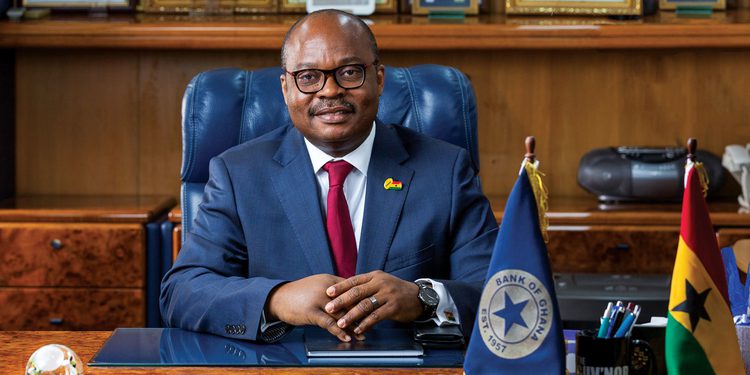Bank of Ghana Stepped in to Avoid Economic Standstill, Says Governor
Dr. Ernest Addison, the Governor of the Bank of Ghana (BoG), has defended the central bank’s decision to finance government expenditure last year, stating that the economy would have been destabilized if the BoG had not stepped in.
“We need to remember where we are coming from at the beginning of 2022 when we lost access to the capital market,” said Dr. Addison at the SIGA annual stakeholder meeting in Kwahu Abetifi. “This is a government that had access to the capital market for at least $3 billion each year, but we started 2022 with the downgrading of the economy and, therefore, the source of financing was not available.”
He added that the revenue measures were not successful, leading to financial trouble for the government. “In addition to that, the revenue measures were not working, with the revenue projections performing below targets,” said Dr. Addison. “All those meant that government finances were in trouble, as expenditures needed to be funded, but there was no money.”
According to Governor, the central bank stepped in to prevent the economy from destabilizing and coming to a standstill. “It is important to recognize that we could have gone into this crisis much earlier than we went; if the BoG hadn’t stepped in, investors in government bonds were not going to be paid the interest,” he stated.
On a net basis, the BoG last year financed the government to the tune of GH¢44.5 billion. However, the central bank has faced criticism over its decision to support the government’s budget in 2022.
The Governor explained that the situation became unsustainable by mid-2022, leading to the government’s decision to seek support from the International Monetary Fund (IMF).
“They admitted that the financing from the central bank was needed until we had a plan,” said Dr. Addison. “We have been discussing this plan with the IMF over the last three to six months and finally had a staff-level agreement in December.”
The plan, according to Dr. Addison, involves fiscal consolidation and debt restructuring. “So when people speak as if we have been reckless, I disagree completely,” he said.
One of the key objectives of the IMF programme, according to Dr. Addison, is to ensure that the revenue and expenditure plan for 2023 does not require central bank financing, making the central bank’s interest rate policy more effective.
Regarding SOEs, the Governor said, he said, “It is important that SOEs are competitive and efficient and it is expected that we will have a policy which will state clearly what the objectives and guiding principles of state ownership will be”.
He also noted that the policy should clearly outline the roles and responsibilities of the shareholder or management of state-owned enterprises (SOEs), as well as the fiscal relations between the government and SOEs, including financing and dividend payments. “The policy should also specify what the fiscal relations between the government and SOEs are, including the financing of SOEs and dividend payments,” he said.
Dr. Addison added that the policy should provide a framework for the remuneration of board members and executive management of SOEs, based on their technical competence, and place a cap on salary adjustments for SOEs.
“All of those were being discussed and were part of the issues under the IMF programme,” he pointed out.









